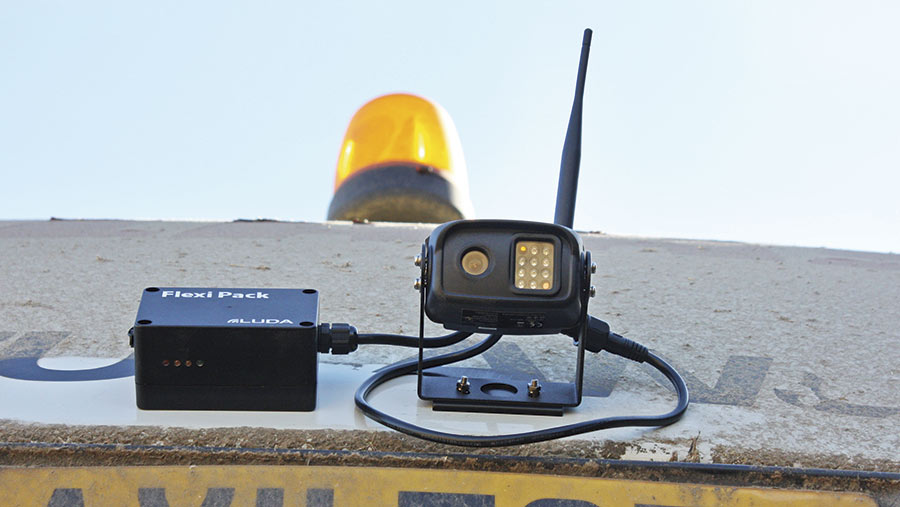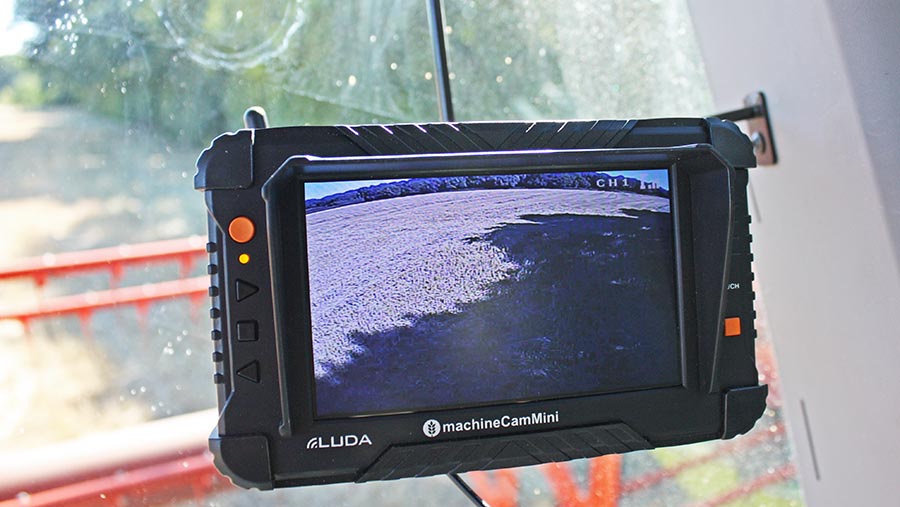On test: Can wireless CCTV make trailer reversing a doddle?
Wired CCTV systems have been kicking around on combines and other big pieces of kit for years, but moving to wireless set-ups has proved a trickier business.
Getting the signal from a camera at one end of the machine to a screen at the other – and keeping it stable – isn’t always easy.
So when Swedish company Luda offered to give us one of its latest units to try, we jumped at the chance.
It’s not a cheap system – £310 is at the top end of the market – but it has a feature up its sleeve that marks it out from other makes.

© David Cousins
Set-up was gloriously simple and took about 10 minutes. The quick guide consisted of a tiny leaflet with very few words but lots of icons and arrows show you how to put the thing together.
See also: Remote farm spots could be protected with wireless CCTV
You can go down the semi-wired route by fixing the camera on to the back of a combine, forager or sprayer and pick up the machine’s 12V power from the rear number-plate light.
But if you want to move the camera quickly you can go totally wire-free. It couldn’t be simpler: you attach the camera to the back of the machine via a meaty magnet and plonk the nearly-as-strong battery pack next to it.
Now get back in the cab, attach the 5in monitor via a sucker and shove the lead into the machine’s 12v socket.
The camera and monitor will automatically recognise each other and provide a pretty decent rear CCTV, allowing you to (a) stop backing the combine or forage harvester into trees on the outermost headland run or (b) back trailers into barns without fear of squashing co-workers.

© David Cousins
It’s also nice to have some rear vision if you are taking the combine or forager on the road. And you can probably dream up other uses for a wireless-free CCTV, such as putting the camera on top of the grain bucket so you can see down into the grain lorry and know how much space is left.
Downsides? It’s quite expensive. The cost of the kit with one camera is £310, a battery pack is £103 and each extra camera costs £125.
Also, the battery pack we were supplied with lasted for only 4-5 hours. We queried this disparity with the maker, who said that a batch of under-par battery packs had gone out and that they should normally run for 10-12 hours at a time.
The equipment is sold through Devon company Sparex.

